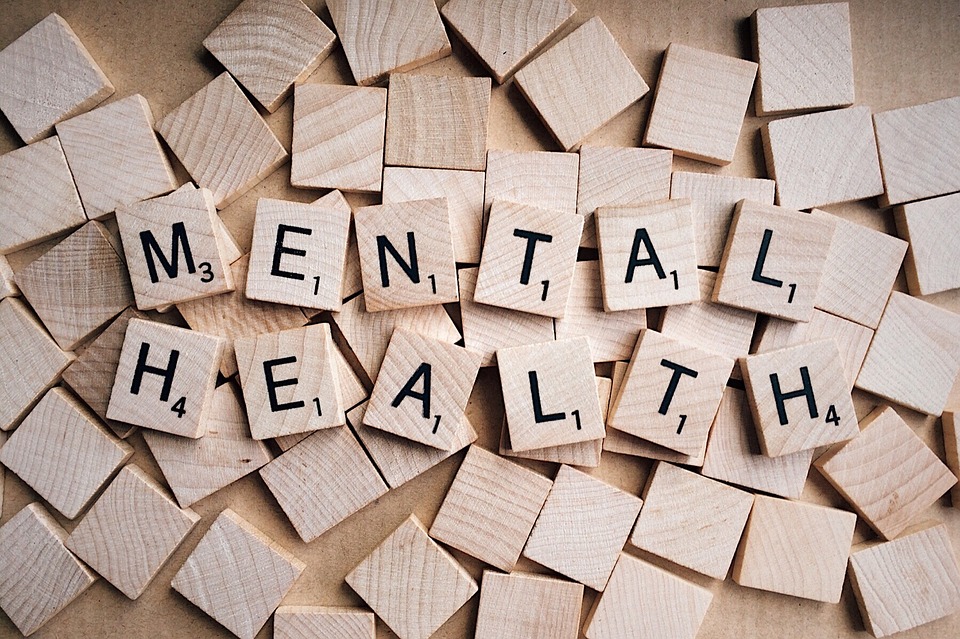The psychology of “Healthy Individuals”
There are times in which we consider not having bubonic plague as a passable indication of good health. However, the concept of “Healthy Individuals”, obviously extends deeper than this—even deeper, perhaps, than the purely physical aspect. Just as important, if perhaps more subtle, is the aspect of one’s psychological health.
On December 27th, SMIC alumnus Bobby Ge (’14) gave a seminar on his own observations regarding mental health and depression while in college. “It struck me how much it has a discernible physical effect,” Bobby remarked to me shortly after. “When you are depressed or when you have those moments, you find yourself much more tired—you don’t want to get out of bed—those kinds of things. It’s not something someone can just yell at you to get over and you’ll get over it. It’s a legitimate concern.”
Psychological illness is not often spoken of or admitted to, often primarily due to how it may erroneously be believed to indicate a weakness of the mind. However, its causes are more nuanced than some poorly-conceived notion of “mental weakness”. According to Renee Miller, a writer on the Live Strong health site, “Adolescents are trying to answer the question of ‘Who am I?’ This process establishes several identities for…teen[s], including sexual, social and occupational, and this can cause considerable stress. Depression can occur when these stresses, immaturity, and the inability to bond combine to affect a teen’s ability to reason and cope with daily life.” Hailing back to the works of developmental psychologist Erik Erikson, so much of what happens mentally in the teenage mind has to do with this. The adolescent psyche develops through a state of cautious discovery of itself, and so whenever some major aspect of that sense of self seems to fail — for instance, in the situation of receiving low grades when one had built one’s self-worth on being an “A-student” — the effects can be very significant. In severe cases, it can even be a potential cause for depression.
The question, then, is how we may better fortify our sense of self against such potential attacks, so that we may better strengthen ourselves as healthy individuals. In his seminar, Bobby discussed the concept of Self Complexity. “[Self Complexity] is the idea that your identity is created out of multiple sources, so that if one thing falls or breaks, the whole thing doesn’t come crashing down”. This model was first conceptualized by psychologist Patricia Linville. The idea is that the concept of self is strengthened if it has many distinctive components. To be involved in a community centered on the study of physics, for instance, while simultaneously being engaged in a Christian fellowship devoted to caring for the homeless, can provide a greater degree of what has been called a “buffer” for that sense of self identity, which creates more than one source of inward support to rely on in times of emotional stress. “Conversely, if you have very few things, if anything goes wrong, it can cause a major blow to who you are,” Bobby noted.
However, this concept is not a call to get involved in dozens of irrelevant clubs and extracurricular activities. “Self complexity is about the things that form your identity and your self-worth,” Bobby continued, “so while extracurricular activities are meant to help you find them, if you don’t invest any genuine interest in them, they’re not going to help you.” The key here is sincere self-expression in activities you love, not just the adoption of more activities for the sake of it. Its significance as a means of self-expression is where the true value lies, and if we attempt to force ourselves to implement things that simply do not resonate with us, it will only prove detrimental.
Ultimately, the question of mental health hinges significantly on finding places for self-discovery and expression particularly through a variety of activities and communities, so as to better fortify one’s sense of self against the kind of “role confusion” Erikson describes. The term “health” in “healthy individuals” encompasses so much, and it is possibly because of this that the element of mental health is so often overlooked. Yet, in the context of the adolescent age group, it is far more relevant than is discussed typically.
Important information from Live Strong and Simply Psychology.
Featured Image – Mental Health from Pixabay, courtesy of user Wokandpix.

